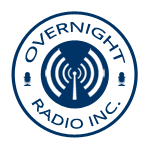The employer/employee relationship. One built on trust and mutual respect. An acknowledgment of the hierarchy of the corporation…where one person is in charge of the other. Almost in a parental role. Some employers would say EXACTLY like a parental role.
In my limited experience in life, conversations with colleges in my industry (radio broadcasting) and others, the sentiment is usually the same with managers/employers. When you take on an employee, you take on another responsibility. And well you should. They have taken a semi-oath to be faithful to you and your company for a significant part of their lives. Everything they do within the 8 hours a day you pay them for is for you.
But it’s not just managing employees workload you need to deal with, as employees have issues on TOP of your regular duties. Sure you are in charge of answering questions, handing out work orders, quality control AND answering to your bosses. But what if Susan needs the day off to get her kids? Fine, you will get John to cover. But John already has a big workload that needs to be finished this afternoon. Call in Steve, he never lets you down! Except today, because he is late. So, as it always does in a position of ‘power’, it all comes down to you. YOU are the one in charge so YOU are the one held responsible.
For Overnight Radio Inc., the employer/employee relationship is something of yesteryear (at least in radio production). We use a different model. Since we are literally a group of people radio stations hire out to handle their daily production needs, we couldn’t possibly follow the employee/employer model with our clients…the paperwork alone would render us unusable. We use the more independent system of ‘colleague teams’ or ‘group work for hire’.
With this scenario, not only do we fill a need for stations looking to outsource their production to a solid team of producers/voice over artists, but we come with an added bonus of a client NOT needing to fill out any forms, NOT trying to cover employee days off, and NOT needing to give any personal attention to anything other than the business at hand.
Barbecue with this model, everyone works for themselves. Meaning, as an ‘colleague’ there is NO ONE ELSE that can solve your problem but you. If you can’t make it in, you don’t get paid. Also meaning, no one has added pressure of finding someone to fill in for you, to help you with whatever issues you have. These are yours and yours alone to deal with.
For example, say one of our voice over artists is down with the flu. You wouldn’t even notice, as it’s up to us (as one of your colleagues) to pass it on to a similar sounding voice which we have procured a long time ago…along with a back up for that one and the next one too.
As well as if someone has scheduling issues because of something unforeseen, once again, that is none of your concern…your production will STILL be delivered.
All you have to concentrate on is handing out the workload.
We are built as a group of real people here at our studio’s in the forest city, as well as a network of colleagues, and everyone is in charge of themselves.
What we have found in our almost 20 years of existence, is that firstly, it makes everyone more responsible for their own ‘product’ (their work) and secondly, it makes them much more proud to do it.
For us, it’s a win-win…and for our clients, it’s a win-win-win.
People working together without the constraints of a class or hierarchy system. It’s something that works, AND works independently of supervision.

